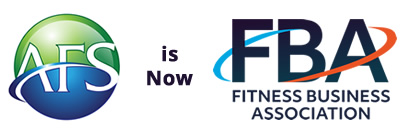 By Merideth Harrington, Special AFS Contributor
By Merideth Harrington, Special AFS Contributor
Every fitness studio wants their clients to find success because ultimately success is what will keep them coming back again and again. If your clients are putting in the physical work but continually experiencing poor recovery or having trouble bringing power to their workouts, they may be missing out on key nutrients.
While getting enough protein, carbohydrates, and fats are an essential part of training, micronutrients are also required to rebuild and replenish tired bodies. Depending on the type of class and how often they lead it, trainers may be especially vulnerable to this sort of burn out. Here are eight vitamins, minerals, and antioxidants (and the foods that contain them) that intense exercisers are most likely to miss out on.
Eight Vitamins, Minerals, & Antioxidants to Recharge Your Trainers & Clients
1. Calcium
Find high levels of calcium in seeds (especially poppy, celery, chia, and sesame), dairy (cheese and yogurt), beans and lentils, almonds, whey protein, some leafy greens (kale and collard greens), and rhubarb. Because of calcium’s critical role in bone formation and maintenance, some studies suggest taking calcium and vitamin D before exercise can actually influence how bones adapt to exercise.
2. Vitamin D
Unfortunately, fish, eggs, and mushrooms are some of the only dietary vitamin D sources. Since there are no unfortified foods that are particularly high in vitamin D, it’s a good idea for the vast majority of people to supplement it, especially if they live in darker climates or exercise heavily. While exercising may actually boost vitamin D production, the critical role it plays in bone, brain, and heart health makes a vitamin D supplement a helpful ally to exercisers.
3. Zinc
Meat, shellfish, legumes, seeds, nuts, and dark chocolate all contain high levels of zinc. Because of the critical role that zinc plays in exercise performance (and the fact that exercise can “use” it up), this one is a particularly important one to keep an eye on.
If your clients are putting in the physical work but continually experiencing poor recovery or having trouble bringing power to their workouts, they may be missing out on key nutrients.
4. Magnesium
Many plant-based foods like nuts and seeds, avocados, legumes, whole grains, and (once again) dark chocolate are high in magnesium. Strenuous exercise can result in so much magnesium being lost in sweat that daily requirements go up 10-20%. Magnesium deficiency amplifies the bodily stress that can occur as a result of intense exercise.
5. Vitamin C
Because vitamin C is water-soluble, it is one of the multiple vitamins lost in sweat. As a result, consuming beverages high in vitamin C post-workout is a good idea to replenish your stores. Foods high in vitamin C include guava (one cup has over 400% of your daily amount!), tomato and orange juice (not from concentrate!), sweet peppers, broccoli, oranges, strawberries, and other fruits.
6. Vitamin E
Foods high in vitamin E include wheat germ oil, sunflower seeds (and oil), nuts (almonds, pine nuts, peanuts), avocado, and salmon. Vitamin E may help prevent free radical damage that occurs during long-distance exercise, so it’s better to have these foods well before a workout.
7. Beta-carotene
While there are high levels of beta-carotene in many spices, foods like carrots, sweet potatoes, spinach, butternut squash, and cantaloupe are probably easier to consume in higher amounts. Because of its antioxidant activity, studies show beta-carotene may enhance exercise performance and recovery.
8. Selenium
Selenium may not receive as much attention as other antioxidants at the moment, but especially in individuals who are overweight, selenium may alleviate the oxidative damage associated with exercise. The superstar food when it comes to selenium is the brazil nut. A single ounce of brazil nuts contains 544 mcg, so it’s wise to limit your consumption to a few times a week to avoid overdoing selenium.
In conclusion
To maximize athletic performance (and overall health!) it’s a great idea to encourage trainers and clients alike to keep tabs on these micronutrients, and to use supplements to fill any nutrient gaps their diet leaves.
To do this, consider posting physical signage in your studio, sending out some tips and tricks in an email blast, posting on social media, or encourage trainers to remind clients of good foods to fuel up with before and after workouts. When your clients support their goals with nutrition, everybody wins!
Merideth Harrington currently serves as a marketing consultant for Fitness Formulary and is also the Senior Vice President of Marketing & Product Management for GlobalFit. Merideth is a fitness industry veteran, specializing in growing revenue for start-up and early-stage health, fitness, and wellness companies. Her expertise is in sales and marketing platform development including digital marketing, customer acquisition, and lead generation, as well as identifying new opportunities for creating revenue streams for commercial health clubs and medical fitness and weight loss centers.


Join the Conversation!